Edited from Léon Vandermeersch's writings by CNS reporter YING Ni
French sinologist Léon Vandermeersch, called "the most respected sinologist" by one of the foremost Chinese scholars on philosophy and Chinese studies, Tang Yijie, was a former director of the French School of the Far East in Paris. He is known for integrating French, Chinese and Japanese Sinology to create transcultural Chinese studies. A scholar whose studies ranged from the social systems in ancient China and the history of Chinese philosophy to the development of Confucianism in modern times, he also explored the connections between cultural history and modern society in Asia, revealing the particularity and universality of Chinese culture from a transcultural perspective. Vandermeersch, who passed away in 2021 at the age of 93, was the author of several books on China.

In May 2021, Vandermeersch's complete works were released in 10 volumes at an international conference on transcultural Chinese studies held in Beijing. This article is from his writings, comparing the Eastern and the Western cultures.
From a transcultural perspective, what are the differences between the Eastern and the Western cultural values? Is there any complementarity between the two? How do we view the individualism of the West and the collectivism of the East? How can the Eastern and the Western societies realize their own problems by going through the experience of the other?
People know about the influence of the Greco-Roman culture on the world but overlook the extensive influence of the Chinese culture. The Western world should pay attention to the universal significance of China's collectivist culture that enabled the Chinese to adopt coordinated strategies in difficult times, and to be inclusive in times of prosperity.
No Cultural Value Should Be Pushed to the Extreme
Humanism in the West is based on theology derived from Judaism, Christianity and Platonism, and the Western theological tradition evolved from the philosophy of the 13th-century Italian theologian Thomas Aquinas. In the East, especially in China, humanism sees man as a part of the universe like nature. Therefore, traditional Chinese culture conceives of a "unity of man and universe." This is a fundamental difference between the Eastern and the Western cultures, which have different values and different understandings of human beings.
Equality is an important concept in Western humanism. Theoretically, everyone recognizes the concept of equality and uses it as a means to promote human rights; however, in reality, we all know that absolute equality does not exist and is subject to many subjective and objective conditions. Such equality in theory and inequality in reality is universal.
In the West, the concepts of equality and human rights have fostered individualism: Individual interest is more important than the collective interest. The proliferation of individualism has led to a general crisis in Western society—a crisis of "sociality": Each individual has been given unlimited freedom, resulting in the destruction of social bonds and the social spirit. In China, too, we see a certain ideological flaw, as depicted in the 20th-century Chinese writer Ba Jin's Home, a novel about four generations of a family whose life is a metaphor for the clash between the Old China and the forces of change that would usher in the New China. The individual is bound by family and social constraints, which is an Eastern problem.
I believe that the values of each culture are good and deserve respect. Both Western individualism and Eastern collectivism have their merits, which should be inherited, but those values should not be taken to the extreme or be distorted. No matter how great a value is, if pushed to the extreme or distorted, it will have many fallouts.
Western "Democracy" Is Not Enough to Resolve All Our Problems
The Western understanding of society has changed. For the 17th-century British political philosopher Thomas Hobbes, "Man is a wolf to man," that is, men have the ability to act inhumanly toward other men. What regulates the relationship between man and man is interest, and not the ethical principle of "fraternity" or "love for others" that is preached by Christianity.
Hobbes's thinking was the opposite of that of the 4th-century BC Chinese philosopher Mencius. In Mencius's view, "Man's nature is good at birth." If you see a baby fall into a well, you will instinctively try to save it, which is a sign of man's inherent good nature. In Hobbes's view, however, people are not born with such good nature, which develops only with the pursuit of personal interests. Therefore, society can rely only on interests, not on compassion, mercy or goodness. Hobbes advocated the establishment of an enlightened monarchy: A society should have an authority, and the executor of this authority should be an enlightened monarch. Individuals should yield their natural rights to this authority, and only absolute authority can guarantee the implementation of the social contract.
Hobbes's political thought was later criticized by many, the 18th-century philosopher Jean-Jacques Rousseau being one of them. In Rousseau's view, the social contract was not a transfer of natural rights from the individual to the authority, but a transfer of all individual rights to the collective. Rousseau did not deny the existence of individual interests ("All are guided by a consideration of what is in their private interest"), but the common good could bring all individuals together into a moral community, forming a public personality. In this way, the social contract established an equal identity among citizens, all of whom were subject to the same conditions and enjoyed the same rights. After the French Revolution, European society began a long process of democracy-building.
Western democratic thought is somewhat antithetical to the Chinese thought that focuses on harmony, where collective interests take precedence over individual interests. The Chinese believe this is the only way to achieve general social harmony whereas in the Western democratic process, we see the protection of individual interests, where everyone has to protect his or her own interests, which is the norm in Western democratic societies, and this of course gives rise to the supremacy of individual interests.
Why is there a crisis of democracy in Western societies now? It is because of the habit of treating democracy as the highest value, but democracy is not enough to solve all the problems that we are encountering today, such as the distribution of resources and environmental protection. Every country and every company have their own interests, and when it comes to problems, they will fight to protect their own interests. For example, how could the 2008 financial crisis occur after so many years of democracy in the West? This shows that democracy is not sufficient to control and regulate the factors of crisis in the financial sector.
Some Western scholars, such as French sociologist Pierre Rosanvallon, have argued that today's society is fundamentally different from the 18th-century society, so the democratic system created in that era is no longer appropriate today. It is a question of how to respect democratic values and at the same time resolve the problems that our society faces.
China's Collectivism Can Be a Reference for the West
Western democracy is parliamentary democracy, where elected representatives make the laws. However, today parliamentary or representative democracy is in crisis, as manifested in the crisis of party politics.
Party politics is ostensibly about defending public interests, but in reality, it is a fight for power through a democratic process. In this respect, I think China has a different tradition. Chinese collectivism, or the idea of collectivity, may have some reference value for the West. When comparing the Eastern and Western societies, it is meaningless to say which is better or worse. All societies are imperfect and flawed, and we are so caught up in our own traditions that we do not see our own problems and shortcomings. We need to learn from the experience of others to see our own problems and correct our own shortcomings.
In the Western democracies, people think all problems can be solved by the democratic system. Satisfying desire is also seen as a humanist value in democracy. But this is a misunderstanding that leads individuals to constantly pursue the gratification of their own desires. The consequence is that people have no self-discipline.
Regarding desire and self-discipline, I would like to quote John Mill, the 19th-century British liberal thinker, who said, "It is better to be a human being dissatisfied than a pig satisfied; better to be Socrates dissatisfied than a fool satisfied." There is also Gresham's Law, the expression coined by British economist Henry Dunning Macleod, which says "Bad money drives out good." The same danger exists in the case of values. Many people do not take the good values of the West to complement or modify their own culture; instead, they take the wrong or negative things of the West to drive their own ends. I think that when one looks at another culture, one has a tendency, or perhaps a defect, to look at the strange and curious things in that culture, without seeing its true value, and consequently thinking that one's own culture is superior. This is a misconception that comes from comparing what is good in one’s own culture with what is odd and strange in other cultures.






















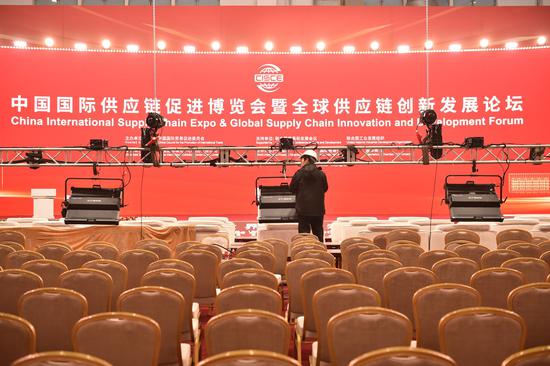

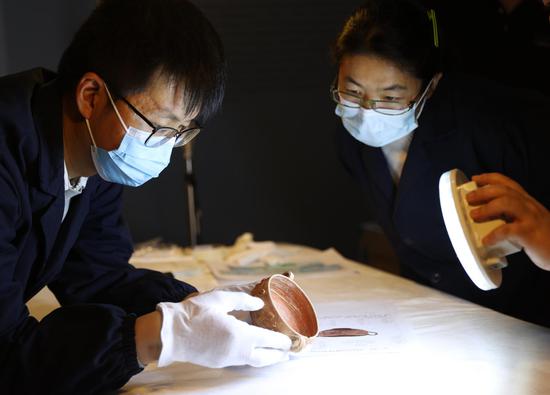











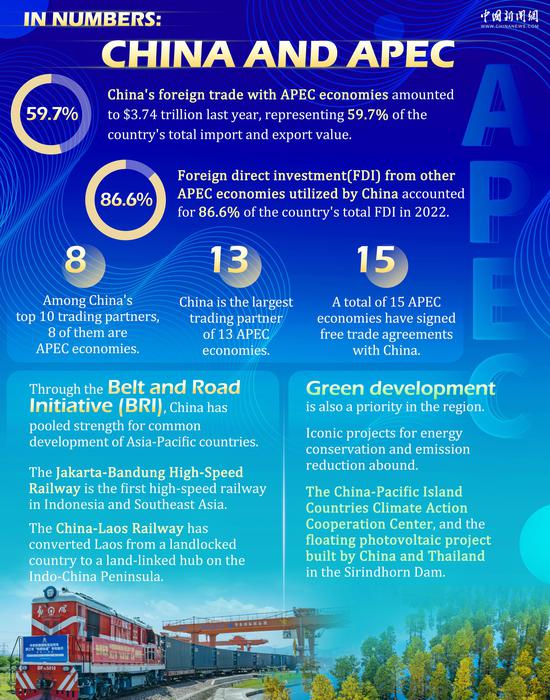
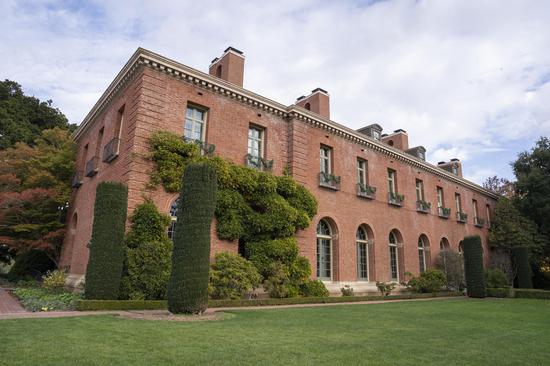




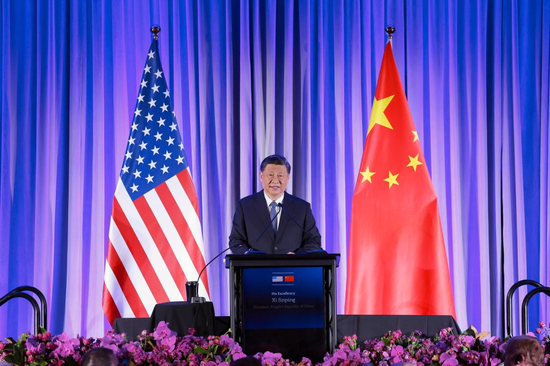
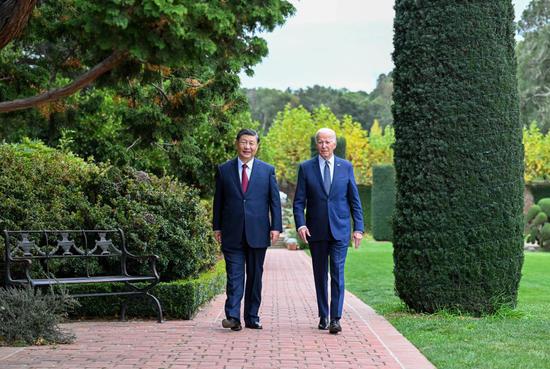






 京公网安备 11010202009201号
京公网安备 11010202009201号